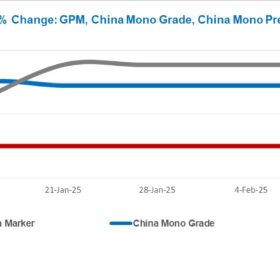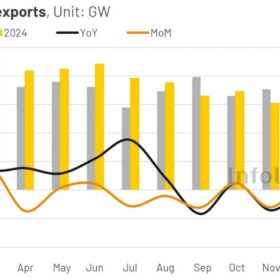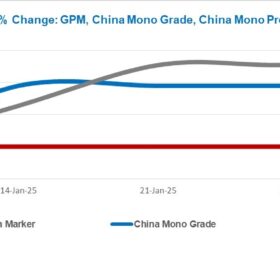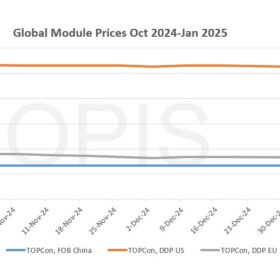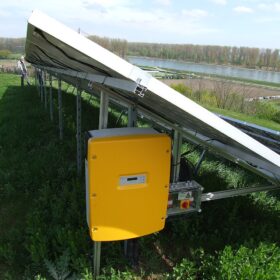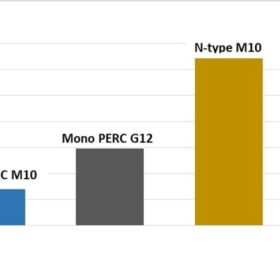Polysilicon market holds steady, awaiting policy-driven shift
In a new weekly update for pv magazine, OPIS, a Dow Jones company, provides a quick look at the main price trends in the global PV industry.
Ensuring ESG compliance in steel: A blueprint for a sustainable future
By embracing environmental responsibility, social equity, and strong governance, steel manufacturers can not only meet the demands of today’s market but also pave the way for a more sustainable and ethical tomorrow.
China exports 235.9 GW of solar panels in 2024
China exported 235.93 GW of PV panels in 2024, a 13% increase over the previous year. Of this, 94.4 GW were shipped to Europe, down 7% from 2023.
China polysilicon price rebound nears its limit
In a new weekly update for pv magazine, OPIS, a Dow Jones company, provides a quick look at the main price trends in the global PV industry.
Meeting sustainability goals: How overlooking EPR responsibilities can lead to costly consequences
Many countries require companies to show that they comply with environmental standards before accepting imports. The EU’s Packaging and Packaging Waste Directive sets the strictest recycling and waste disposal requirements, making non-compliance an obstacle to entry into the market. Companies that don’t adhere to these standards could struggle to grow internationally.
Union Budget 2025: A bright future for India’s solar industry
With climate change and energy security at the forefront of global concerns, the government has unveiled a series of policy measures and incentives designed to accelerate the adoption of solar power.
Global solar module prices mixed on differing demand outlook
In a new weekly update for pv magazine, OPIS, a Dow Jones company, provides a quick look at the main price trends in the global PV industry.
Union Budget 2025: Expectations of India’s solar industry
With the Union Budget 2025-26 approaching, the solar industry anticipates key policy and financial measures to sustain this momentum. The budget is expected to increase funding for green technologies, including solar, wind, and green hydrogen.
Top 5 global inverter trends to watch in 2025
Challenges and innovations drive solar and energy storage inverter industry forward in 2025.
Solar wafer price rebound nears its limit
In a new weekly update for pv magazine, OPIS, a Dow Jones company, provides a quick look at the main price trends in the global PV industry.
